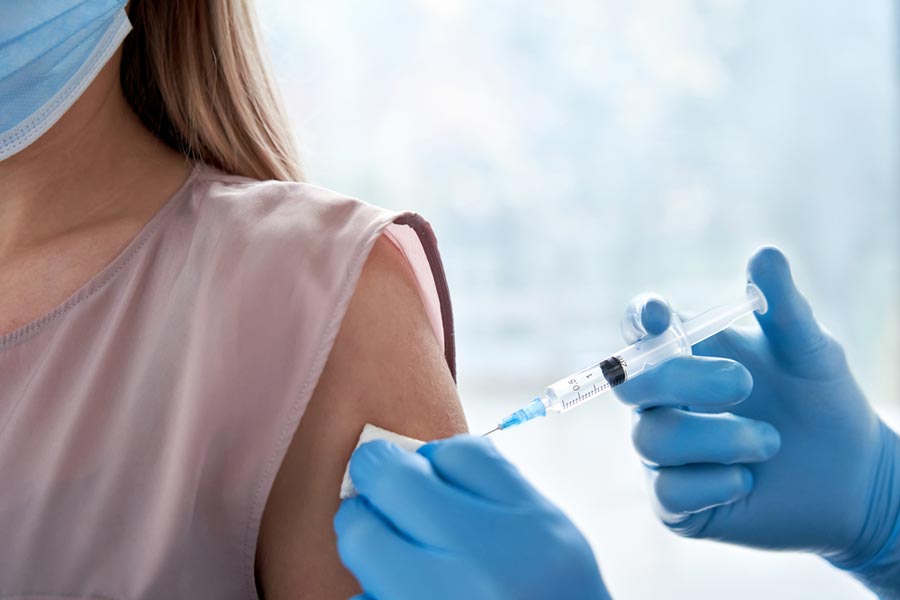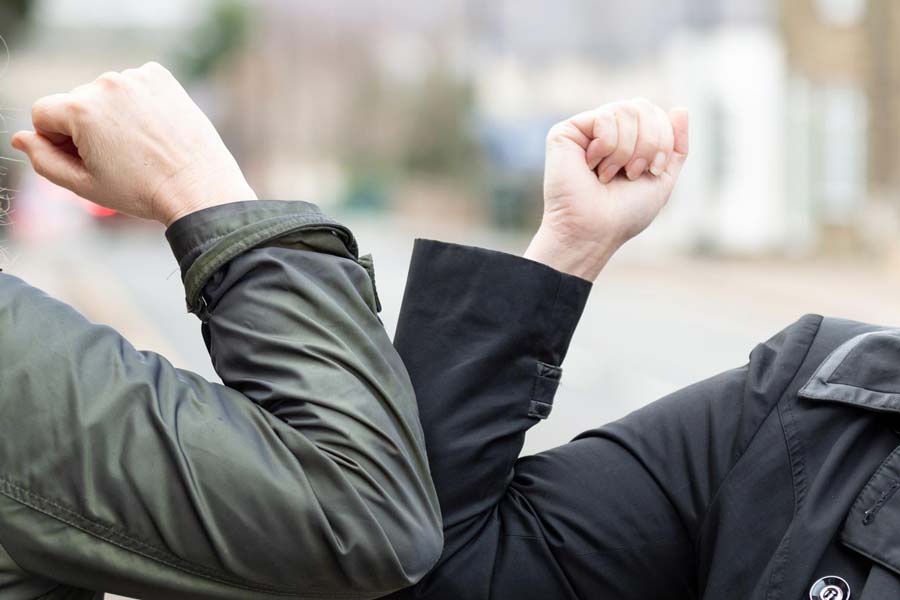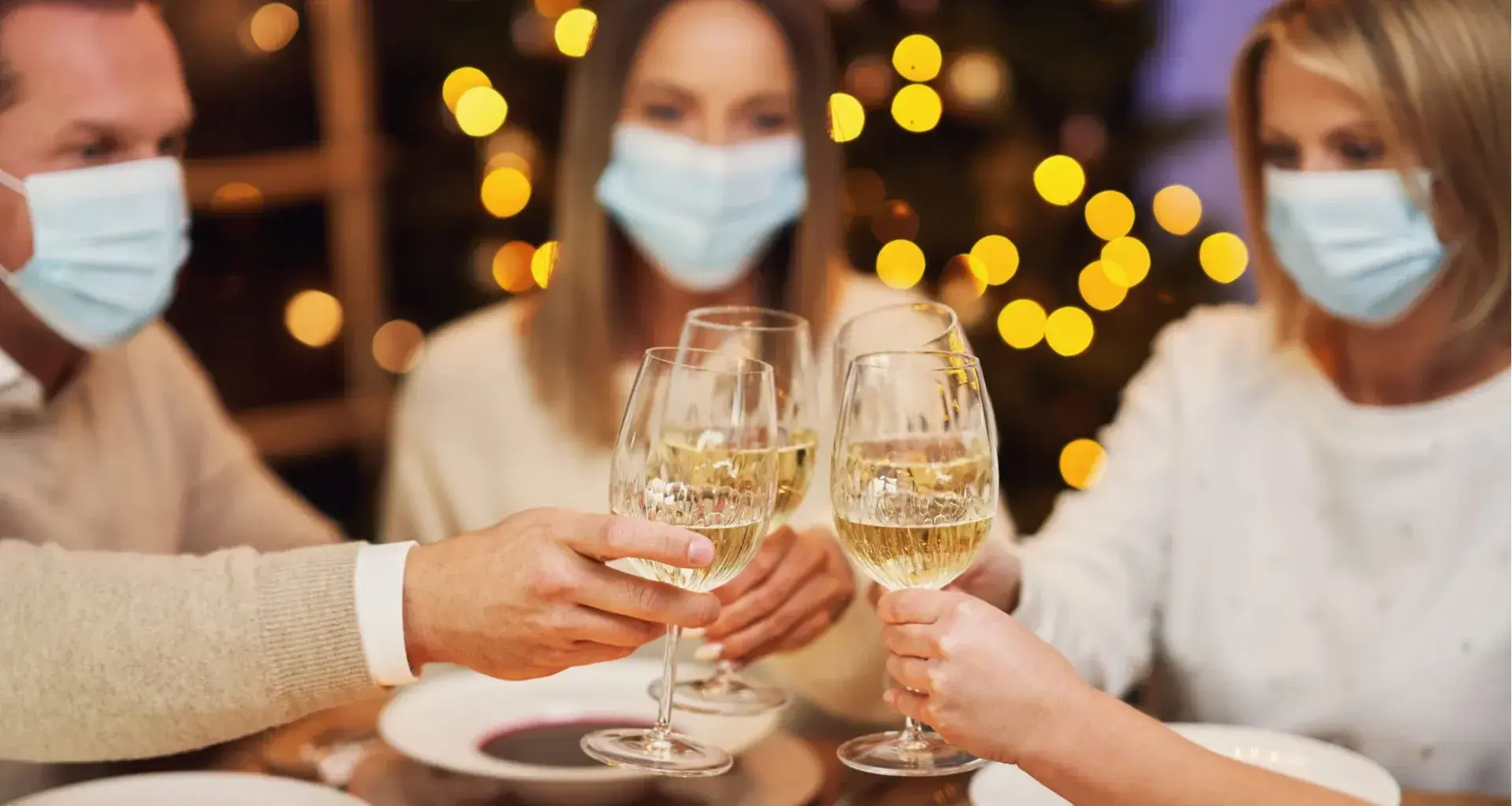It’s important to follow preventive measures and get vaccinated so we can celebrate Christmas, New Year's parties and the holidays more safely and prevent a fourth wave of COVID-19, said Dr. Guillermo Torre, Rector of TecSalud.
“Countries like Mexico shut down from December 12 to January 6. We’re gregarious people, so we want to see family, friends, and religious communities. We want to protect each other, and we want to be together,” said Dr. Torre.
Torre, who is also Vice President for Research at Tec de Monterrey, shared these measures for reducing the risk of COVID-19 infections due to the emergence of the Omicron variant of the virus, as well as the arrival of winter.

1. Get vaccinated against COVID-19
Whether you’re going to see people or not over the holidays, make sure you have the full schedule of vaccinations, more so if you belong to a vulnerable group, such as being over the age of 60 or having a comorbidity such as diabetes or hypertension.
“(We should) step up vaccinations, have full schedules of vaccines,” said Dr. Torre.
The current recommendation is also for an additional dose or booster shot.
He added that no TecSalud employee has been hospitalized due to COVID since vaccinations began.
“No-one has been hospitalized. For me, that’s overwhelming proof that the vaccine works.”
2. Avoid get-togethers in enclosed spaces
COVID-19 is mainly transmitted through the air that you breathe out or in.
You catch the virus when invisible particles of SARS-CoV-2 enter your nose, mouth, and to a lesser extent, your eyes.
To do so, the air you’re breathing has to have a viral load from someone nearby who is infected (even if they’re unaware of it and don’t show any symptoms).
“Try to socialize in open spaces as much as possible,” said Dr. Torre.
3. If you’re in an enclosed space: ventilation and small groups
With diseases such as COVID, the more enclosed and less ventilated a place is, and the more people close together there are, the more risk there is in the air you breathe.
What’s more, try to ensure that there are as few people as possible at any get-togethers.
“Smaller groups, ventilated spaces, keep your distance, and if you’re a vulnerable person, avoid situations of risk more than others,” said Dr. Torre.
As far as possible, avoid staying for a long time in enclosed spaces or try to keep doors and/or windows open to keep the air circulating.
4. Wear face masks correctly
Dr. Torre emphasized that one basic measure is the correct use of face masks.
“Wear a face mask that covers your nose,” said Dr. Torre.
Your face mask has to fit properly. It should fully cover the bridge of your nose and cover 2 to 3 fingers below your lips. If you wear glasses and they steam up, your face mask doesn’t have a good seal. If it’s an N95 face mask, you’ll know it’s well-fitted if it expands when you inhale and exhale.
You should wear a double face mask for greater protection.
If you’ve already been vaccinated, you should still wear a face mask to prevent you from getting infected.
5. Keep your distance and avoid physical contact
The measurement for social distancing is at least 1.5 meters from one person to another.
Avoid greeting people who don’t live in the same house as you with handshakes, kisses, or hugs. You can use your elbows, fists, or feet as ways to greet people.
If you have to sneeze or cough, use “sneezing etiquette.” Don’t sneeze into your hands or into the air.

6. Wash your hands often
You should wash your hands frequently with soap and water for at least 40 to 60 seconds or use an alcohol-based hand sanitizer with 70% alcohol.
Dr. Torre stressed that hand washing does work in conjunction with all the other preventive measures.
“Face masks work. I’d emphasize that hand washing (works), even in a context with a high risk of exposure. It’s very important to stress that,” he said.
7. Avoid being in crowded places
As far as possible, avoid being in places with a high concentration of people, above all in enclosed spaces.
One study shows that COVID transmission rises in places where people speak loudly, shout, or sing, such as concerts or sports events.
8. Get vaccinated against influenza
One additional measure for this season is to get vaccinated against influenza, said Dr. Michel Martínez, head of the TecSalud Epidemiological Surveillance Unit.
“(Getting vaccinated against influenza) removes that distracting factor of an upper and lower respiratory infection that could be confused with COVID-19,” said Dr. Martínez.
It can be administered at the same time as the COVID vaccine but should be injected in the other arm.
“If we’re more prudent and vigilant (about the preventive measures), people can protect themselves from Omicron or any other COVID variant.” - Dr. Guillermo Torre
9. Stay at home if you have any symptoms
As far as possible, avoid get-togethers over the holidays, more so if you show any symptoms of COVID, said Dr. Reynaldo Lara, an infectious disease specialist at TecSalud.
“If you have any symptoms, if you’re in any pain, you have to think of your loved ones. That’s the most important thing, raising awareness of how to look after those around you over the holidays,” said Dr. Lara.
10. Get medical help if you think you’ve been infected
People with a fever, headache, general malaise, loss of taste and smell, or diarrhea may have been infected by the SARS-CoV-2 virus, said Dr. Lara.
If so, they should get medical help to determine whether it is necessary to take a test to detect COVID-19.
“An early and timely COVID diagnosis allows you to make certain decisions, such as monitoring your blood oxygen levels and establishing precautions for other people,” he said.
11. Be socially responsible to prevent infections
Following these preventive measures, as well as isolating or taking a test if you suspect you’ve caught COVID-19, has repercussions on society, said Dr. Lara.
“(Following these measures) is how we’re going to protect our colleagues, our friends, and our families. I urge you to look after yourselves and look after your loved ones,” he said.
“If we’re more prudent and vigilant (about the preventive measures) we’ve been talking about for the past 2 years, people can protect themselves from Omicron or any other COVID variant,” concluded Dr. Torre.





